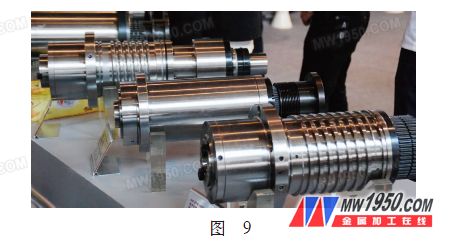There is a significant demand for Taiwanese machinery equipment in China, largely due to its reputation for high-quality products. However, when it comes to precision standards in machine tools, we advocate adhering to ISO and VDI 3441 measurement methods based on mathematical statistics rather than the Japanese JS standard. This approach ensures more accurate and consistent results. Firstly, Taiwan excels in building robust machine tool foundations. They've established a large casting facility in Kunming, capable of producing key components for various machine tools to cater to diverse market demands. These parts meet the technical specifications required by different clients, making them highly sought after. Consequently, numerous domestic machine tool manufacturers collaborate with them, including many private small enterprises placing orders. Having observed their work, I can confirm that their casting quality is impressive. Over the years, they’ve significantly contributed to the growth of small and medium-sized machine tools in mainland China. Nonetheless, their capacity for producing large-scale castings remains limited. In addition to casting, Taiwan also manufactures essential functional components like spindles, ball screws, oil temperature control systems, and automated lubrication solutions. These components have gradually become well-known brands. From what we understand, many domestic machine tool producers incorporate Taiwanese spindles and systems as standard features in their own machines (as seen in Figure 9). Their CNC spindle options offer versatility, playing a crucial role in promoting the adoption of numerical control equipment across the mainland. Taiwan has made commendable progress in functional component manufacturing. However, there are challenges. For instance, one issue arises with certain spindles equipped with BT40 devices, where the bearing preload might be slightly excessive, leading to greater cutting force but also occasional vibrations. While this issue was resolved by switching to another spindle system, it’s not universally applicable. Such cases highlight areas for improvement. Currently, the global economic slowdown and sluggishness in the machine tool sector present both challenges and opportunities. We hope Taiwan's machine tool industry will continue to strengthen its technological capabilities, focusing on expanding production of major equipment. Collaborating with mainland enterprises capable of manufacturing large-scale equipment could help create localized, large-scale, heavy-duty, and precise machinery. This collaboration would allow both sides to leverage their strengths in major equipment manufacturing, fostering innovation and enhancing the "Made in China" brand. In conclusion, while Taiwan's machinery industry has achieved notable success, there is room for further advancement. By addressing specific issues and fostering stronger partnerships, Taiwan can continue contributing to the global machine tool market and maintain its competitive edge. Wood Veneer Board,Skin-Feeling Wood Veneer Panels,Colorful Mirror Pvc Foam Board,Skin-Feeling Wood Panels Shandong Zeen Decoration Material Co., Ltd. , https://www.zeendecor.com
Figure 9